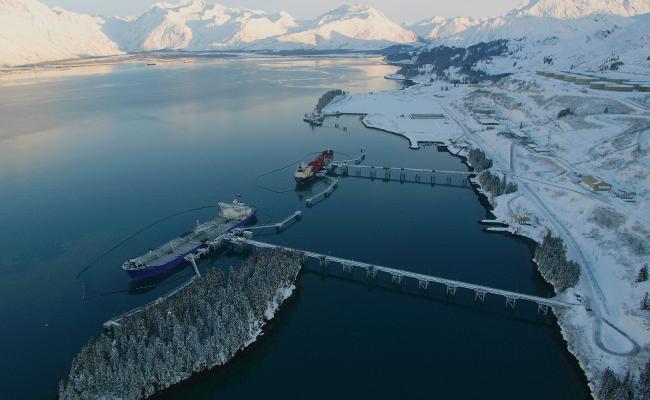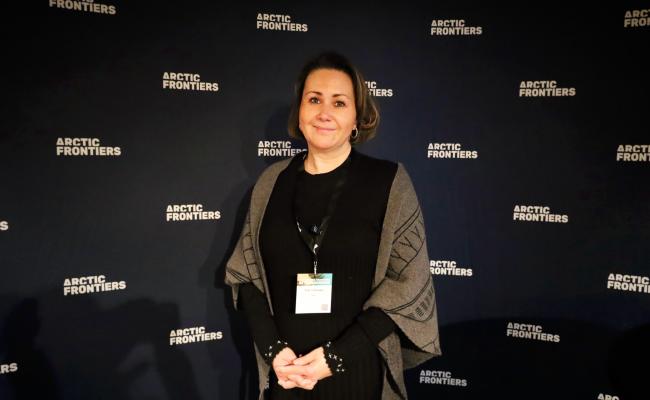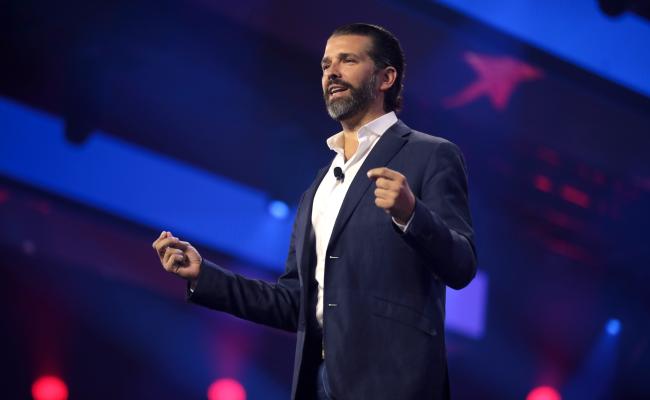Gwich'in Council Reproaches USA for Undermining Cooperation on Arctic Challenges
Edward Alexander is the Co-Chair of the US Gwich'in Council International (GCI), which is a permanent participant in the Arctic Council. (Photo: Trine Jonassen)
The Gwich'in Council International, representing 9,000 Gwich'in in the Northwest Territories, Yukon, and Alaska, reproaches the US for undermining Arctic cooperation. "The Arctic is facing immense challenges which require international cooperation and collaboration, not confrontation," says Edward Alexander, Co-Chair and Head of Delegation.
The Gwich’in Council International represents 9,000 Gwich'in in the Northwest Territories, Yukon, and Alaska and is a Permanent Participant in the Arctic Council.
Yesterday, the council released a press release in which they reproach the US for its threats of annexing Kalallit Nunaat, or Greenland, as well as Canada, as the "51st state."
Since taking office in January, President Trump has repeatedly expressed a desire to take Greenland by force, which has set off widespread condemnation from both the island and its allies. Most recently, he reiterated the threat in an NBC News interview.
“I don’t say I’m going to do it, but I don’t rule out anything," he said, stating 'international security' as the justification for such an act.
Edward Alexander, the Co-Chair of Gwich’in Council International and Head of Delegation, highlights the need for cooperation in the Arctic region.
“The Arctic is facing immense challenges which require international cooperation and collaboration, not confrontation. We need to cooperate to slow and halt climate change, we need cooperation to protect our environment from the tragic global implications of the Arctic wildland fire crisis and abrupt permafrost thaw, and we need to build a more peaceful Arctic built on mutual respect and norms," he says, adding:
"Lastly, we need to work together to protect the salmon, the caribou, and all creatures, plants, and the environment on which we depend.”
Also read (article continues below)
"Gwich’in Council International, on behalf of the Gwich’in and our member governments in the United States of America and Canada, express our growing concerns regarding the stability of peace and cooperation in the circumpolar north, which we call home," writes the council in the press release and continues:
"We explicitly, and in no uncertain terms, repudiate claims from the United States of America to annex Kalaallit Nunaat over the will of its people. We recognize the sovereign and self-governing rights of the people of Kalaallit Nunaat, the Inuit, and the people of the Kingdom of Denmark, to decide for themselves what is in their own peoples’ best interests."
The council continues to say that although the Gwich'in occupy only a small corner of the Arctic, they know after tens of thousands of years in this environment that mutual respect for others, cooperation, unhindered trade and mobility, and respect for self-determination and sovereignty all form the bedrock for a peaceful Arctic.
The Arctic Council
The Norwegian chairship has guided the Arctic Council through turbulent times after Russia's invasion of Ukraine.
We need to be sure that the shared principles of Arctic governance are not lost or eroded
“As a Permanent Participant to the Arctic Council, we will continue to advance our rights as Gwich’in, amplify the voices of our communities, and engage in constructive dialogue with others, and remain committed to peace, security, and safety in our homelands and across the Arctic," says Kris Statnyk, Co-Chair and incoming Head of Delegation.
The council highlights the particular challenges of the Arctic, like climate change and Indigenous rights, which the US administration has made a non-priority, and even attacked.
Yet, climate change and Indigenous peoples are at the forefront of the Arctic Council's work, making the upcoming shift of chairship a hot topic.
"The Arctic is changing rapidly, four times faster climatically than the rest of the world. As we work together to jointly address these drastic changes and challenges, we need to be sure that the shared principles of Arctic governance are not lost or eroded," writes the council.
"These shared principles include mutual recognition and respect for the rights of Indigenous Peoples in the Arctic and everywhere, the sovereignty of states to peacefully continue to co-exist, and the principle that cooperation and consensus-based actions in the north form our collective path forward."
"As always, Gwich’in Council International remains committed to engage in productive dialogues that advance the collective aim and responsibility of stewarding a peaceful, climate-stable, Arctic built on cooperation and our shared principles of mutual recognition and respect."





